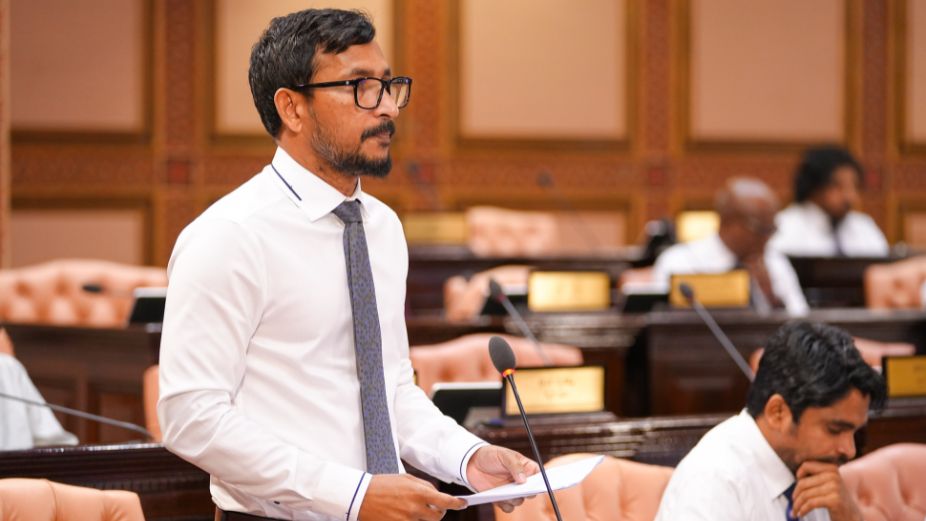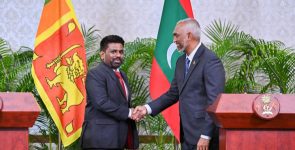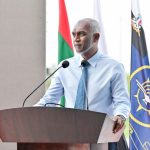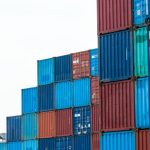
In the Maldives, as the nation is grappling with economic instability, rising national debt, and a fragile tourism-dependent economy, the intersection of money and politics has once again come under scrutiny. A recent petition calling for a reduction in lawmakers’ salaries and benefits has reignited debates about the financial privileges of Members of Parliament (MPs) and their influence on governance.
The Petition and Parliamentary Pay
On Tuesday, Ibrahim Falah, the PNC parliamentary group leader and Inguraidhoo MP, responded to a petition demanding a reduction in lawmakers’ salaries, allowances, and premium health insurance benefits. The petition, which garnered over a thousand signatures by Thursday afternoon, argues that the current remuneration of MPs—set at MVR 82,500 per month (comprising a basic salary of MVR 62,000 and a MVR 20,000 committee allowance)—is excessive amid the Maldives’ economic challenges. It highlights the disparity between MPs’ premium healthcare, which includes free medical treatment in ASEAN countries for themselves and their families, and the Aasandha scheme available to ordinary citizens. The petitioners call for the abolition of committee allowances, the equalisation of health insurance benefits with the public scheme, and a broader reduction in government expenditure.
Falah, while acknowledging the petition’s merit, proposed that any pay cut should apply to the next parliamentary term in 2029 rather than the current assembly. He argued that implementing reductions now would hinder MPs’ ability to repay debts incurred during the last election, a process he claims costs “millions of Rufiyaa.” This stance underscores a critical aspect of Maldivian politics: the high financial stakes of electoral campaigns and their lasting impact on lawmakers’ financial obligations.
The Cost of Political Ambition
Falah’s remarks reveal a deeper truth about the business of politics in the Maldives—entering parliament is an expensive endeavour. Candidates often rely on personal funds, loans, or donations to finance campaigns, creating a dependency on post-election earnings to offset these costs. The current parliamentary salary of MVR 82,500, though substantial compared to the average Maldivian income, is seen by some MPs as a necessary buffer against this debt. Falah’s suggestion that a future salary of MVR 5,000 be set for the 21st Majlis implies that prospective candidates should be prepared for lower remuneration, theoretically reducing the financial barrier to entry. However, this overlooks the entrenched reality: political campaigns remain a costly affair, often funded by wealthy backers or personal borrowing, locking politicians into a cycle of financial obligation.
This cycle is not unique to the Maldives. Globally, the business of politics thrives on moneyed interests. In democracies, candidates often depend on donations from corporations, influential individuals, or party machinery, creating a quid pro quo dynamic. In the Maldives, where the PNC holds a supermajority of 75 seats in the 93-member People’s Majlis, the party’s dominance amplifies the influence of its financial supporters. President Dr. Mohamed Muizzu’s decision to take only half of his MVR 100,000 salary has been lauded as exemplary, yet it contrasts sharply with the reluctance of MPs for the President’s own party to follow suit, highlighting a disconnect between leadership rhetoric and legislative action.
Money as a Tool of Influence
The influence of money in Maldivian politics extends beyond campaign financing. The petition’s call to scrap committee allowances and premium healthcare reflects public frustration with the perks that accompany political office. MPs’ access to free medical treatment abroad, facilitated by Allied Insurance, stands in stark contrast to the Aasandha scheme’s limitations, which often leave ordinary citizens struggling to afford care. Last month’s parliamentary committee decision to enhance these benefits—approving overseas treatment without reimbursement and proposing a special insurance card—further entrenches this privilege, despite the nation’s fiscal woes.
Historically, attempts to increase MPs’ salaries have met resistance. During the 19th Majlis, under the Maldivian Democratic Party’s (MDP) supermajority, a proposal to raise salaries to MVR 100,000 was shelved following public backlash. Falah’s critique of this move suggests a political point-scoring exercise, but it also underscores how financial incentives shape legislative priorities. MPs, indebted from campaigns, may prioritise policies that secure their financial stability over those addressing national debt or public welfare, perpetuating a system where personal gain overshadows public good.
The Vicious Cycle
The interplay of money and politics in the Maldives forms a vicious cycle: candidates borrow or solicit funds to win elections, enter office with debts to repay, and resist pay cuts or reforms that threaten their financial recovery. This cycle erodes public trust. The petition’s rapid support reflects a growing sentiment that lawmakers prioritise self-interest over national needs, especially as the Maldives faces a looming debt crisis. The International Monetary Fund has warned of a “high risk of debt distress,” yet MPs’ reluctance to accept pay cuts suggests a disconnect from the economic reality faced by constituents.
Broader Implications: The Business of Politics
The Maldives’ experience mirrors a global phenomenon where politics operates as a business. In the United States, for instance, congressional campaigns often cost millions, funded by corporate lobbying and political action committees, binding elected officials to donor agendas. In the Maldives, the scale is smaller, but the principle remains: money buys access, influence, and power. The high cost of entry deters grassroots candidates, favouring those with financial backing, while post-election perks ensure loyalty to the system that sustains them.
Breaking this cycle requires systemic reform—campaign finance regulations, transparency in political funding, and a redefinition of public service as a duty rather than a profit-making venture. Falah’s proposal to delay pay cuts until 2029 may defer public anger, but it does little to address the root issue: a political class insulated from the economic struggles of its electorate.
The debate over lawmakers’ pay in the Maldives is more than a fiscal issue; it is a window into the business of politics. Money fuels electoral success, indebts politicians, and shapes governance, creating a self-perpetuating cycle that undermines democratic ideals. While President Muizzu’s salary sacrifice sets a symbolic precedent, the resistance from MPs reveals the entrenched interests at play. As the Maldives navigates its economic challenges, the question remains: can politics transcend its transactional nature to serve the public, or will it remain a lucrative enterprise for the few? The petition’s call for equity in pay and benefits is a step toward accountability, but dismantling the vicious cycle demands a broader reckoning with the role of money in power.












